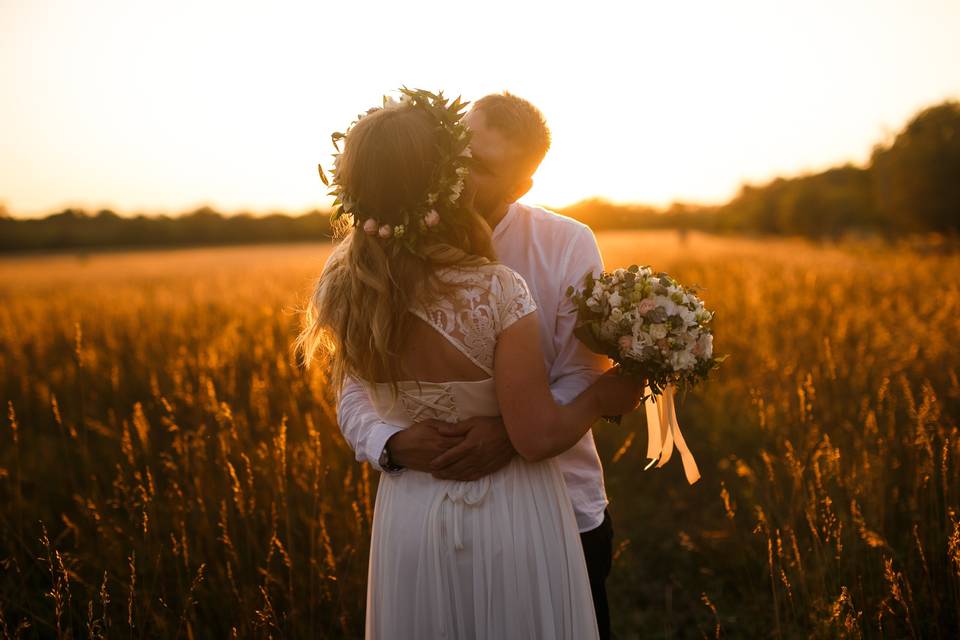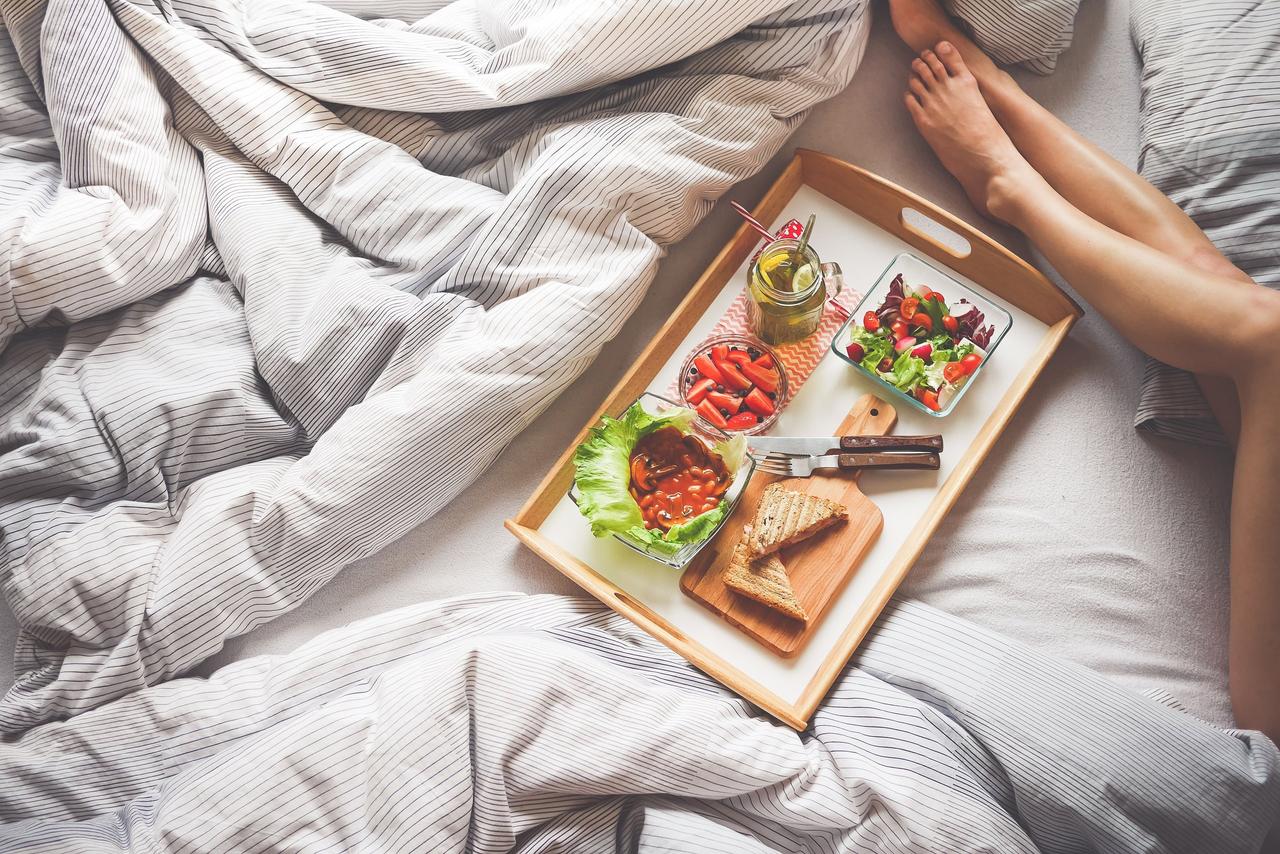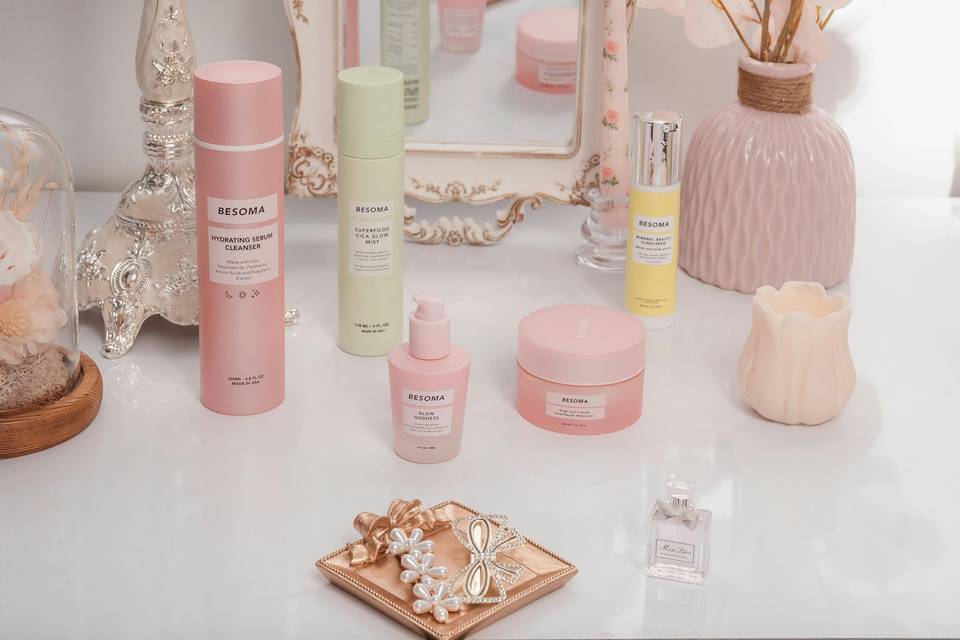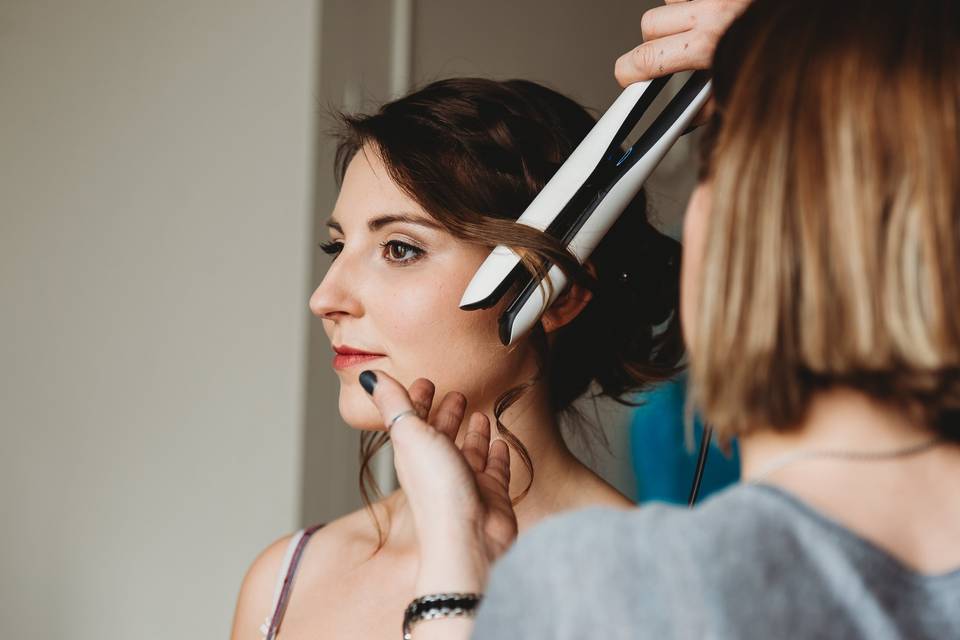Wedding Planning Stress: 13 Ways to Look After Yourself & Reduce Stress
Planning a wedding is stressful, there are no two ways about it, but there are ways to lessen the pressure. We spoke to the experts about their top tips for managing wedding planning stress
We have included third party products to help you navigate and enjoy life’s biggest moments. Purchases made through links on this page may earn us a commission.


People often say that moving house and starting a new job are the most stressful things in life. We’d be willing to bet that those people haven’t planned a wedding - because there is such a thing as wedding planning stress.
While planning a wedding is undeniably exciting, it requires a lot of big decisions, often costing a lot of money, so it’s only natural to find the process stressful. It’s ultimately more than worth it, but when you’re consumed with stress, we all know it’s not fun.
“An event as big as a wedding requires you to juggle lots of commitments and financial concerns so it’s natural to feel some stress,” says Stephen Buckley, Head of Information at Mind. “Being under pressure is a normal part of life, but if you become overwhelmed by stress, these feelings could start to be a problem.”
If your usual de-stress hacks of self-care, exercise or a walk in nature aren’t helping, you might need to take action. We consulted the experts, including wedding planners and nutritionists about their top tips for easing wedding stress. Take notes!
READ MORE: The Best Sleep Products to Guarantee a Good Night
13 Ways to Manage Wedding Planning Stress
1.Step Away From The Wedding Planning

It might feel like you’ll become even more stressed if you step away from the wedding planning tasks you need to complete, but taking a breather will likely help you gain perspective when it comes to the tasks you’re finding stressful.
“Stepping away from the task at hand for a night, or even a few hours will help you reset,” says wedding planning expert Sommy Echezona, of M.Fiore Events. “Giving yourself a mental break from the task will help you come back refreshed, with a new outlook.”
Fellow wedding planner Siobhan Edem, of Signature Moments Events, agrees: “If I find the couple I’m working with is becoming stressed or overwhelmed I take them out for something to eat,” she shares. “By doing this we’re able to have a laugh, while knocking out some of the tasks in a less formal setting.”
Siobhan also notes that stepping away will help identify what is triggering the stress, meaning you’re better able to tackle it.
2. Have a Drink (of Water!)
We don’t mean crack open the rosé, instead we mean stay hydrated.
“Dehydration can mimic feelings of anxiety and panic,” explains nutritionist Charlotte Faure-Green. “When we’re dehydrated our body assumes there’s a drought and releases stress hormones in response.
“Without adequate water, our bodies can feel fatigued and our brains sluggish,” she says. This can result in brain fog, hampering your decision making, which might set you back in your planning. “Staying hydrated is the simplest way to give the adrenal glands, and our minds, a little relief.”
3. Go Back To The Start

With seemingly endless options out there, and countless decisions to make on everything from table settings to themes for the day, your dream wedding can get lost. Sommy advises going back to the start of your planning journey when it all gets too much.
“If my couples become stressed or overwhelmed by the options and opinions of others, I get them to go back to the start of their journey and discuss the story of the day that they want to tell, and the vision they see for their wedding,” Sommy says. “This resets them and gives a clear vision to achieve the wedding they want.”
4. Limit Caffeine
The first thing you reach for when you’re getting tired from wedding planning is a nice cup of coffee, but Charlotte points out this isn’t always the best idea.
“By design, caffeine fires up our adrenal glands to release stress hormones,” she explains. “Limit your caffeine intake to one or two cups a day, after food only (this slows the absorption), and no later than 2pm - so it doesn’t impact sleep.”
5. Get Plenty Of Sleep
On the subject of shut-eye, Charlotte emphasises the importance of sleep during your wedding planning journey. It’s normal to lose a few hours of kip when you’re stressed and can’t switch off, but it impacts you more than feeling a little sleepy. Discover our pick of the best sleep products here to help you out.
“Sleep is a time when everything in the human body rests and repairs, and everything in our physiology calms down,” Charlotte explains. “The heart rate slows, blood pressure lowers and tissue repairs. It’s also the time for us to process the events and emotions we experience throughout the day.
“Sleep allows us to heal and reset, not just physically and mentally, but emotionally as well. There’s a bidirectional relationship between sleep and stress- when we don’t get enough sleep, we struggle to manage stress and higher levels of stress can affect the quality and duration of sleep.”
Charlotte has some key advice for sleeping well, starting the morning before. “Getting sunlight in your eyes on waking starts your circadian rhythm, creating serotonin which will later transform into melatonin, allowing for a lovely, restful sleep,” she explains.
Charlotte also emphasises the importance of allowing our brain to slow down in the evening. She suggests no screen for a couple of hours before we intend to sleep. “Blue light mimics sunlight, slowing the melatonin production, which can impact your ability to fall asleep and stay asleep,” she says.
We all know the lure on a scroll on Instagram in bed, so a pair of blue light blocking glasses is a good idea if you love to use your phone at night.
Nutritionist Jessica Sepel, founder of JS Health Vitamins recommends taking a vitamin formula that supports sleep.
“My favourite herbs and nutrients to support a good night’s sleep are lavender, passionflower, chamomile and magnesium. In supplement form, these can be taken about an hour before bed to help calm the mind and relax the body for slumber. I would recommend taking these a couple of months out to establish a regular sleep pattern and ensure your body is not lacking sleep approaching the wedding,” she says. Try JS Health PM +, £24.99 for 30.
6. Divide and Conquer

Sommy recommends dividing the wedding planning tasks into three sections: two that you take the lead on individually, and one section of jobs to tackle together. “Doing it this way means that one person doesn’t end up doing all the work, and nobody feels overwhelmed with too many tasks,” she says.
7. Mix Up The Planning Tasks
Rather than doing all the fun wedding tasks (wedding cake tasting, wine sampling) first and leaving the boring bits until last, schedule the fun bits in between the admin jobs, says Sommy.
“If you schedule the fun moments and spread them out between budgeting and admin, it adds little moments to look forward to and keeps you excited about planning,” she explains.
8. Don’t Forget Dates
When you’re consumed with wedding planning, it’s easy to forget to schedule date nights to get you out of the house and out of wedding planning mode.
Dates don’t need to be expensive - even a walk, or one drink at the pub where wedding-talk is off the table is enough to ease stress.
9. Eat Within 45 Minutes of Waking Up

The time of day you eat can impact whether you feel stressed or not, and Charlotte advises eating within 45 minutes of waking. “When under additional life stressors, eating within 30 minutes to an hour of waking up is optimal,” she says. “It tells our body there is no famine, lowering stress.”
READ MORE: The Best Breakfast Ideas for the Morning of Your Wedding
10. Ditch The Diet
We mean it. Especially if you’re following a fasting diet.
“Fasting is something I never recommend in my clinic for my uber stressed or clients with anxiety,” Charlotte cautions. “When we fast our body must create energy somehow [because it’s not getting it from food]. Typically, we have eight hours (give or take) of energy following our evening meal. When this runs out, the liver uses glycogen stores in your muscle, then will start to use fat and protein to create glucose. To do this, it requires cortisol, one of our stress hormones.
“If we’re already overproducing cortisol due to upcoming nuptials and all that planning a wedding entails, this can be adding to the load and hugely detrimental to our mood and health.”
“Fasting in itself can induce higher levels of cortisol as not having food is stressful,” Charlotte continues. “We are primordial beings and scarcity of food is a stressor for our body. Our ancient brains can’t determine if we’ve stepped into a vast expanse of desert, or we just haven’t popped to Tesco, or if we’re doing this by design for the next dress fitting, it just knows there isn’t any fuel coming.”
READ MORE: Why You Don't Need to Lose Weight for Your Wedding
11. Ask Your Wedding Party For Help
If everything is getting on top of you, your wedding party is likely to be happy to help. “Delegation is key!” says Siobhan. “They are there to help you.”
12. Stock Up On Supplements
“Stress is metabolically and nutritionally expensive, meaning it uses up - and needs- a heavy supply of good minerals and vitamins through diet,” Charlotte explains. “Annoyingly, stress can impact our gut function, so whether we are able to absorb all the wonderful nutrients from our diet is another matter.
“I would recommend supporting your mind and body health with a good multivitamin if you feel a little under pressure. Be sure to check that it is compatible with any medications you are taking, or run past your friendly healthcare practitioner,” she adds.
There are supplements out there designed to help with stress, too. Jessica Sepel recommends stocking up on JS Health’s Anxiety + Stress formula, £31.99 for 60.
Anti-stress supplements aren’t a quick fix, though. Jessica advises taking them for six to 12 weeks to see optimal results, though fans of her Anxiety + Stress supplement report seeing an immediate difference in how calm they feel.
READ MORE: How to Avoid Getting Sick Before Your Wedding
13. Make A Done List
At the end of every day (or at least once a week), note down all the things you’ve completed that day and celebrate the small wins.
To-do lists can send you into a panic and actually hinder your effectiveness, but an ‘I’ve done’ list makes you feel proud and strengthens your motivation.
Evidence has shown the importance of writing it down too, not just keeping it inside your head. Read them and marvel at how amazing you are and all the things you’ve achieved (however small those tasks may seem). You've got this!
If you're still feeling stressed, read up on the things that ultimately didn't matter on real couples' wedding days - it helps to put things into perspective!








